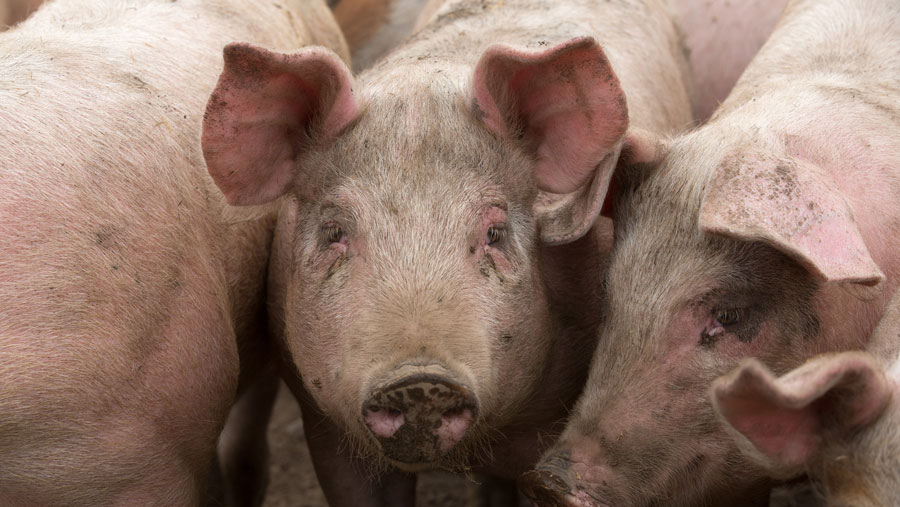African swine fever: Defra reveals new pork import controls
 © Tim Scrivener
© Tim Scrivener Defra has announced a ban on non-commercial pork imports to help protect Britain’s pig sector against the highly infectious disease African swine fever (ASF).
From Thursday 1 September it will no longer be legal to bring pork or pork products weighing more than 2kg into Great Britain, unless they are produced to the EU’s commercial standards.
The ban is for products from the EU and European Free Trade Association states (Switzerland, Norway, Iceland or Liechtenstein), but does not apply to commercial imports.
See also: African swine fever threat: What farmers need to know
A risk assessment by the Animal and Plant Health Agency (Apha) concluded that the most likely way the virus could reach the county is by a member of the public bringing pork produce back from an ASF-affected country.
The disease has spread at an alarming rate in Europe, notably Italy and Germany, and the UK government has been urged to tighten its border controls.
At the end of May, ASF was detected on a German pig unit close to the French border – a 500km (311 miles) distance from previous known cases.
The outbreak was in a small herd of outdoor pigs near Baden-Wuerttemberg, in western Germany.
AFS was then confirmed in pigs in a new region of Germany, in Emsland, Lower Saxony, about 15km from the Netherlands border.
The farm contained 286 sows and about 1,500 piglets. Clinical signs of ASF (fever and lack of appetite) were detected in the sows on 1 July, APHA said.
The commonly held theory is that the long distance from previous cases points to an infection route via human movement.
Apha says there is “medium risk” ASF could be brought into Great Britain and the new measures are designed to limit the possibility of infected meat entering the country via routes that include in luggage or vehicles.
Biggest threats
Defra biosecurity minister Richard Benyon said: “An outbreak of African swine fever is one of the biggest threats our pig industry faces today.
“We are not complacent and this decisive and proportionate action will stop the entry of pork products that pose the greatest risk.”
British Meat Processors Association chief executive Nick Allen said he was concerned by the “worrying increase” in small van loads of meat entering the UK from areas affected by ASF, but with no border checks.
“So, we’re extremely relieved that these new measures are to be brought in with immediate effect. The government listened carefully to our concerns and acted quickly to tackle the growing threat to the British Isles of African swine fever,” Mr Allen said.
The National Pig Association said it was pleased the government was “significantly strengthening” the UK’s borders.
Senior policy adviser Rebecca Veale said: “Notifiable diseases such as ASF not only compromise the health and welfare of pigs and potentially devastate businesses up and down the country, but an outbreak would also have huge implications for our ability to trade.
“The risk of ASF has never been so great and the recent outbreaks linked to human movement in Italy and Germany have served as a stark reminder of just how vulnerable we are.
“Producers do their very best to maintain high levels of biosecurity for their individual herds, and the new controls now recognise the importance of national biosecurity to complement this.”
Minimising the risk of a swine fever outbreak in the UK
Apha has issued the following instruction to help stop the spread of ASF to the UK:
- If you are visiting non-EU countries, you must not bring any pork or pork products back to the UK.
- If you are visiting EU or EFTA countries (Switzerland, Norway, Iceland or Liechtenstein), you must not bring back pork or pork products weighing more than 2kg unless they meet EU commercial production standards.
- Dispose of leftovers or food waste in secure bins that pigs or wildlife cannot access.
- Farmers, the public and members of the food industry should practice high biosecurity standards, including never feeding catering waste, kitchen scraps or meat products to pigs, which is illegal and can spread the disease.
